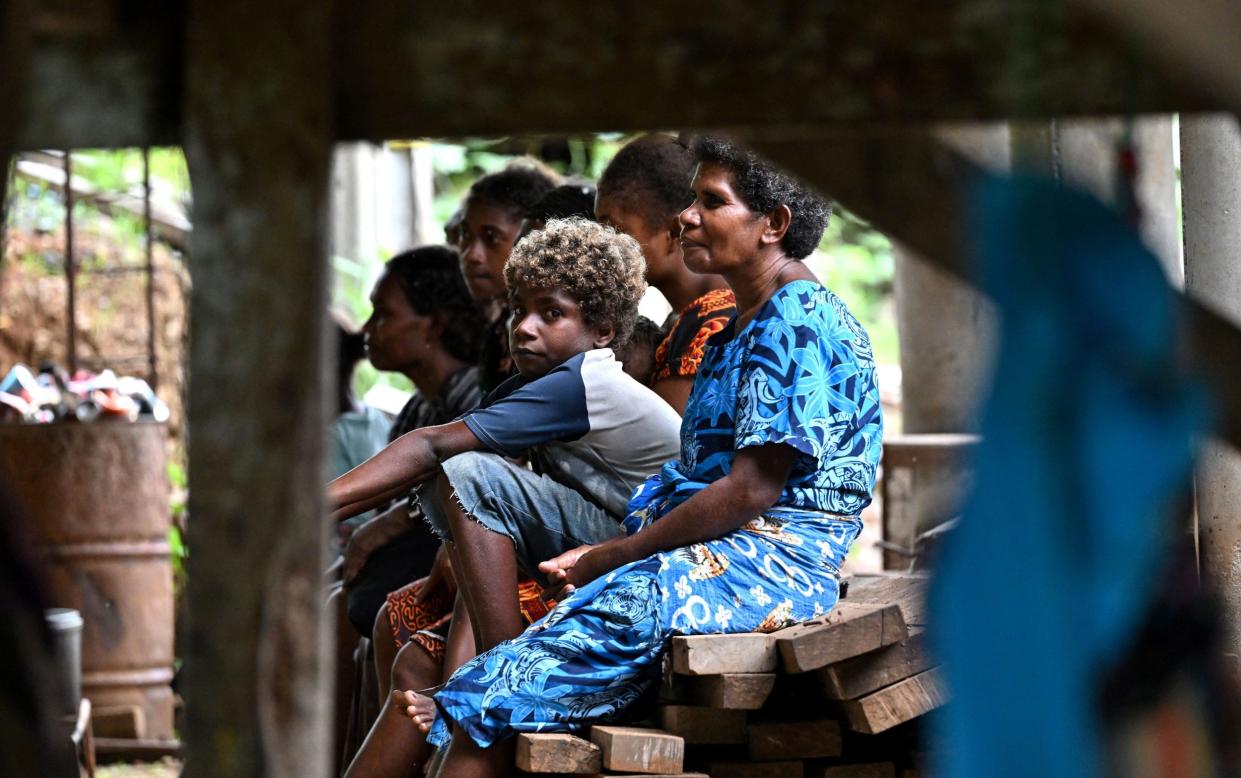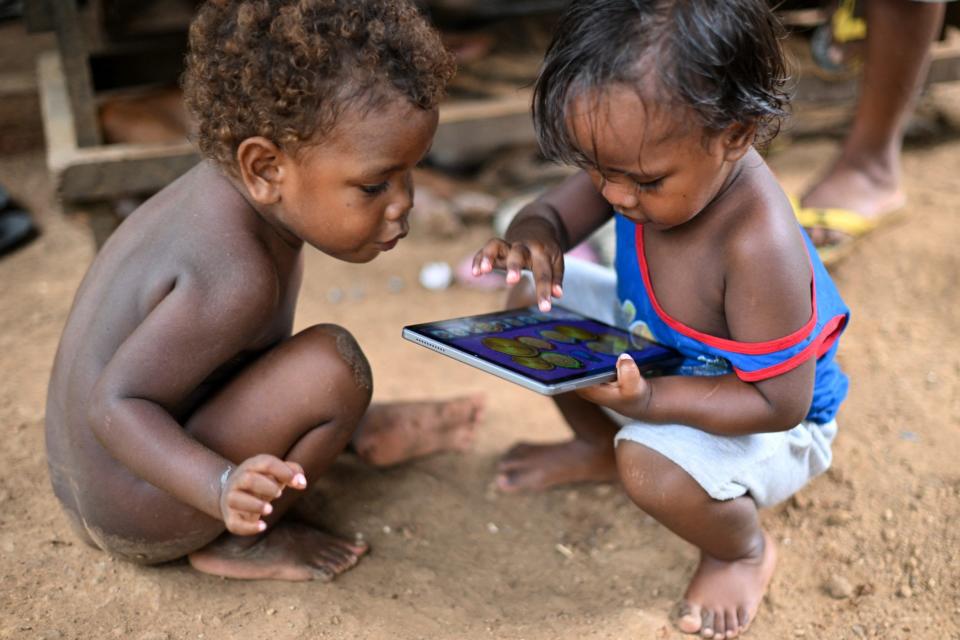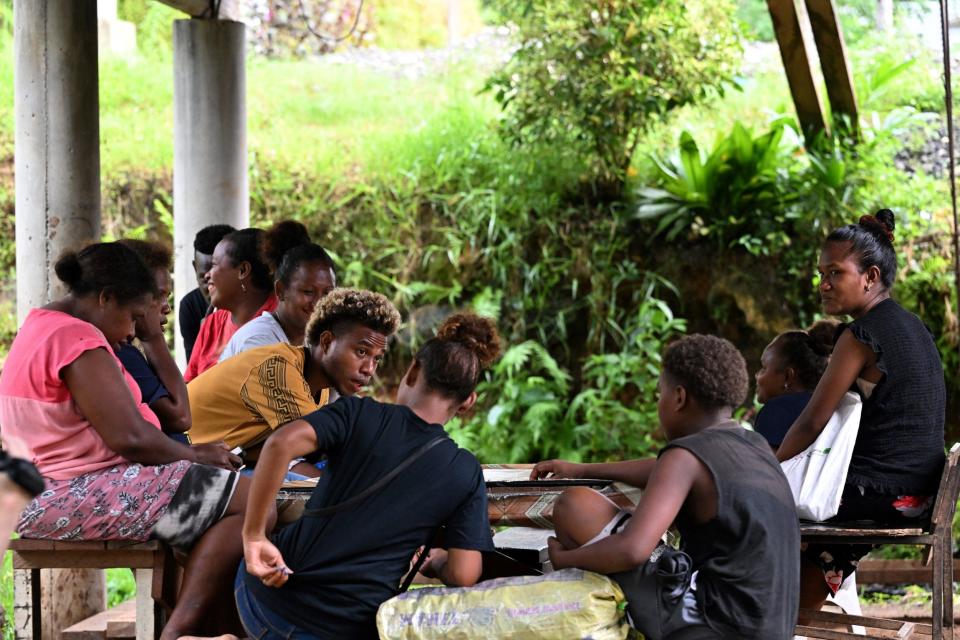‘So prevalent it’s endemic’: The Solomon Islands wage war on a Victorian-era parasite

In Britain’s primary schools, nits are the infestation everyone worries about. But in the Solomon Islands they are fighting a very different microscopic mite.
The Pacific nation has one of the world’s highest rates of scabies, a parasitic infestation caused when tiny mites burrow into the skin and lay their eggs.
At best, the neglected disease triggers itching and a distinct, bumpy rash. At worst, it can lead to secondary bacterial infections, septicemia, heart disease and kidney problems.
Across the lush archipelago, roughly 20 per cent of people are infected. But it is children that are the worst hit.
“We’ve been to schools and found that 50 per cent of kids have scabies, in some places,” said Dr Susanna Lake, a manager at the World Scabies Program, adding that it stops children sleeping at night or concentrating in the classroom. “It’s just incredibly itchy… it has a significant impact on quality of life.”
But there is mounting optimism that the Solomons may soon “knock out” the disease.

In June 2022 the government, in partnership with the World Scabies Program, launched an ambitious initiative to roll out the antiparasitic drug ivermectin to the entire country – just over 700,00 people across hundreds of islands and atolls. Now, the Solomons is in the throes of the second round of mass-treatment.
These programs, known as ‘mass drug administration’ (MDA) in global health parlance, are not uncommon; the approach has been used to tackle conditions from elephantiasis to trachoma, dubbed the ‘disease of thorns’.
But the Solomon Islands was the first to embark on a nationwide scabies MDA, building on the success of smaller trials across the Pacific, where the disease is extremely common.
“We conducted a survey in 2021, and found scabies is so prevalent it’s endemic,” Oliver Sokana, a member of the tropical diseases unit at the Solomon Islands Ministry of Health and Medical Services, told the Telegraph. “MDA is the first stage to controlling the spread of the infection.”
He added that the disease is linked to poverty and overcrowded living conditions, plus poor hygiene and sanitation – issues that have persisted for generations.
“I can recall when I was a boy, I had many times scabies,” Mr Sokana said. “Now, it is a priority for the government to tackle this.”
An infamous ‘pandemic’ drug
In the first round, it took six months and hundreds of healthcare workers to deliver two tablets, one week apart, to people across all 10 provinces. In some places, health workers brought together close-knit communities in a single space to hand out the drugs, in others they went door to door.
In March, a second round of MDA was launched to ensure coverage is as high as possible; the target is to squash scabies prevalence to less than five per cent.
“The aim is to get to a manageable level, so that if someone does get scabies they can go and get treated and stay treated,” said Dr Lake. She added that the mite – which spreads through prolonged skin contact – thrives in packed classrooms and playgrounds.
“At the moment, if you’re a child in a remote village and your parents make the effort to take you to the nearest clinic… you can get treatment, come home, go back to school. Then the next day they could easily get scabies again from their classmates.
“That’s why we want to treat everyone at the same time, to knock it out completely,” Dr Lake said.
The program uses ivermectin – a drug that became infamous after it was proposed as an alternative coronavirus treatment during the pandemic.
But while it is not at all effective for Covid-19, it is extremely good at killing parasites; after two tablets, it wipes out the mites and their eggs. The tiny creatures cannot survive without a human host, which means the program is effectively wiping out the reservoir of disease.
“The initial dose kills the mites,” said Dr Lake. “But it doesn’t penetrate the eggs and so seven days later, once those eggs hatch, we give a second treatment to make sure none are leftover.”

Previous clinical trials have shown the potential of this approach. In one study published in Lancet Infectious Diseases in 2019, which distributed ivermectin to 26,000 people in Choiseul province on the Solomons, rabies cases fell from 19 per cent to just two per cent a year after MDA.
But the region achieved extremely high coverage, which is much harder to do when rolling out a drug to nationwide, 700,000 people on well over 100 islands.
“We have already noted benefits [of the nationwide rollout], there has been a slight drop in the prevalence of scabies,” said Mr Sokana. “There are all sorts of local challenges, we need a lot of planning and to mobilise resources. But the government has made this a priority.
“We’re doing the second round [of MDA] now, and we hope that decline will become very significant,” he said, adding that they will pause to assess the outlook and determine whether more rounds are required.
But Mr Sakana is optimistic that the childhood scrooge, thought of as a Victorian disease in Britain, will soon be history in the Solomons too.
“Scabies affects the younger population – it affects their education, it affects their health, it affects their social mobility. Once we complete the scabies MDA, the benefits are going to be huge for people,” he said. “We anticipate that this will be quite transformative for our country, for our health system, and for individual futures.”
Protect yourself and your family by learning more about Global Health Security

